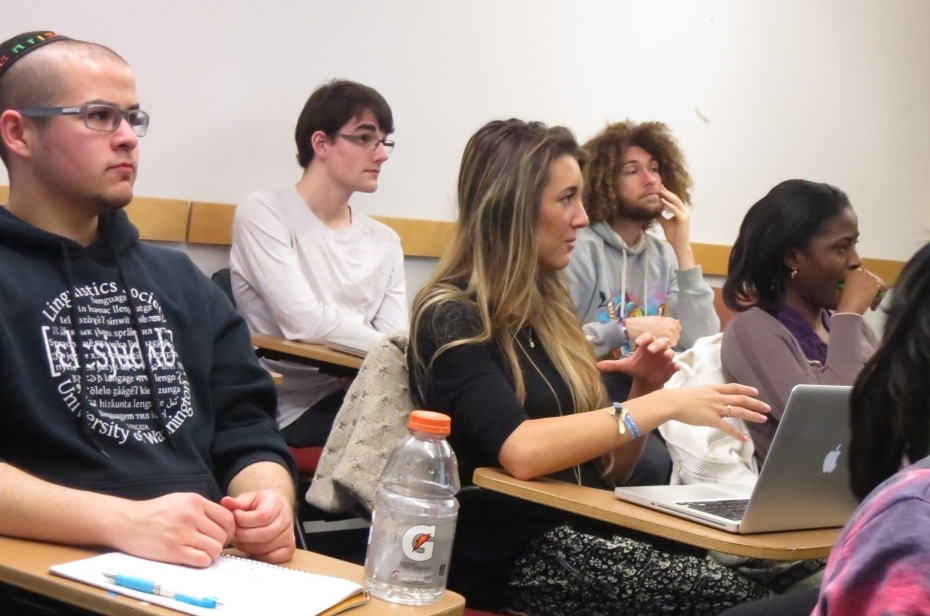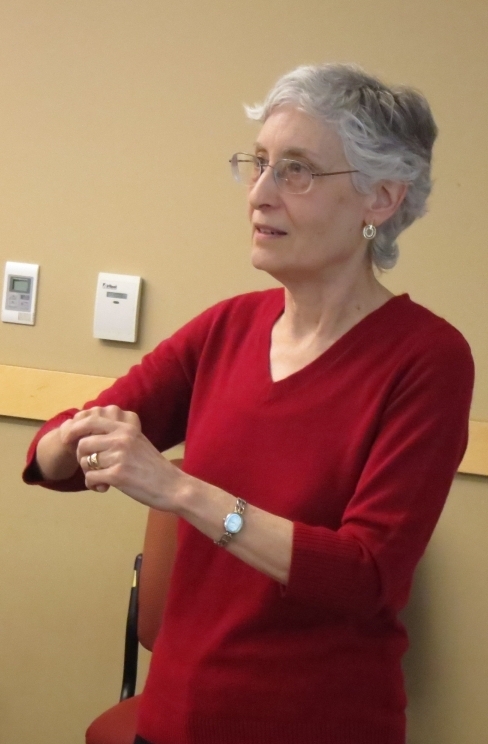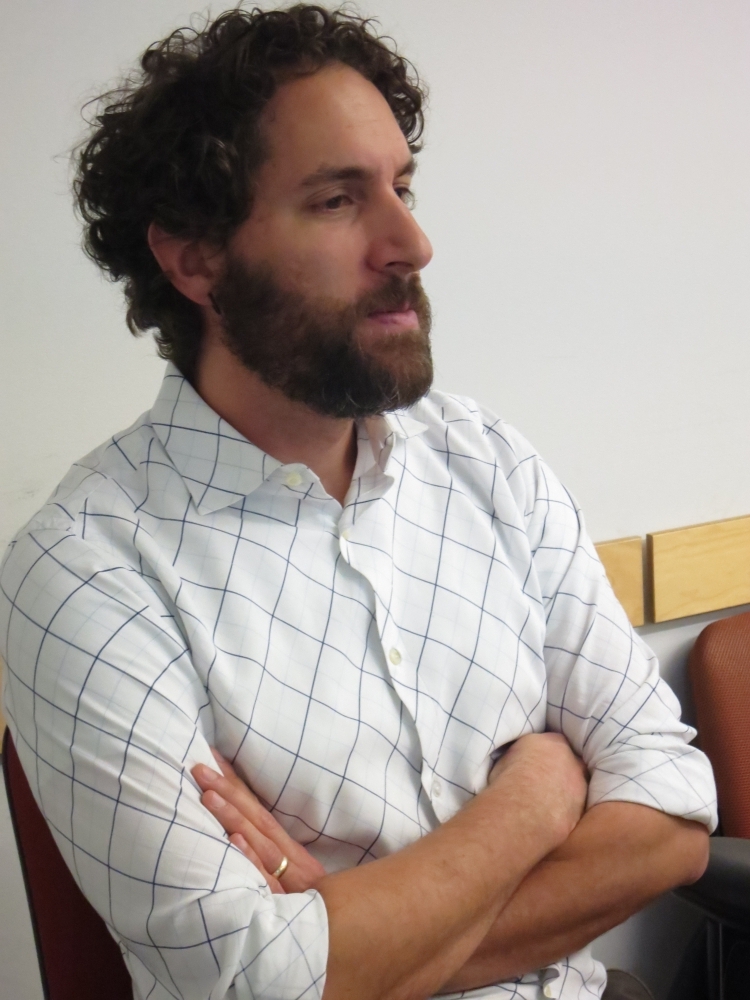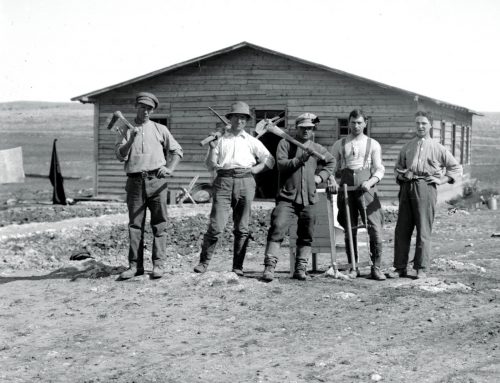
Students participate in class discussion for “Prayers and Poetry in the Jewish and Islamic Traditions.”
Prayer as a Common Language
Is prayer a common language for the Jewish and Muslim faiths? A UW course this past winter quarter, “Prayer and Poetry in the Jewish and Islamic Traditions” (NEAR E 320), asked that very question.

Prof. Naomi Sokoloff offered a twist on her Hebrew prayers course.
Prof. Naomi Sokoloff had been teaching about ancient Hebrew prayers and the contemporary poetry inspired by them for several years. This winter, for the first time, she had the opportunity to add a comparative piece by co-teaching the class with Prof. Samad Alavi, Assistant Professor of Persian Civilization in the NELC Department.
The course covered such topics as public worship, fasting and feasting, mysticism, mourning, gender and the language of religion, sacred books, divine judgment, and the end of days. Prof. Sokoloff says, “By looking at modern writing that draws on long and rich faith traditions, students can see how recent poets and songwriters renew and challenge ways in which earlier generations have grappled with Big Questions. For me this class has been an opportunity to learn more than I knew before about Islam and about Persian poetry. I feel very fortunate to work with Samad Alavi; he’s a gifted teacher, sensitive reader of poetry, and talented translator from Persian to English.”

Prof. Samad Alavi was enriched by the experience of co-teaching.
For Prof. Alavi, co-teaching the class with Prof. Sokoloff was an equally enlightening experience: “I can honestly say that this is the most I have ever learned from teaching a course. From Naomi Sokoloff I learned a great deal about not only prayer and poetry in the Jewish tradition specifically, but also about how to read poems and how to teach in general. And from the students I gained countless insights into the poems that I had selected and about which I was supposedly the ‘expert.’ I hope everyone else found the course as instructive and inspiring as I did.”
“One of My Favorite Courses”
Student responses to “Prayer and Poetry in the Jewish and Islamic Traditions” have been overwhelmingly positive. Noah de Leeuw, a junior majoring in physics, reflected that Professors Sokoloff and Alavi made this potentially difficult material both accessible and interesting to a diverse range of students: “A comparative reading of texts allowed us to observe poets from Jewish and Muslim backgrounds grapple with topics (prayer, mourning, gender) through their respective lenses. Given the weightiness of these issues, it was gratifying to see thoughtful and personal evaluations of the interactions individuals have with those faiths. The aesthetics of the poetry and how poets have drawn from tradition through history were presented in a manner that could be understood by someone without a formal background in poetry or theology. Overall it was a positive experience, the result of which is an increased appreciation for both the history of the Jewish and Muslim faiths as well all as poetry as a whole.”
For Michael Balderas, a NELC major and Finnish minor, taking this course was a way to deepen his knowledge of Islam. He reflected, “I went into this class with a positive view of Islam, but only superficial knowledge of the Qur’an and Islamic calendar. Near E 320 strengthened my conviction that Islam & Judaism are sister religions, and build my knowledge of and respect for Islamic traditions, liturgy, and culture in its own right. One of my favorite courses I’ve taken at UW.”
It is clear that for both the professors and students involved in this course, the experience of bridging between Jewish and Islamic cultures had an impact that will resonate far beyond the winter quarter.
Links for Further Exploration
- Find out about our Spring 2015 Courses
- Naomi Sokoloff’s website, Modern Hebrew at UW







Leave A Comment